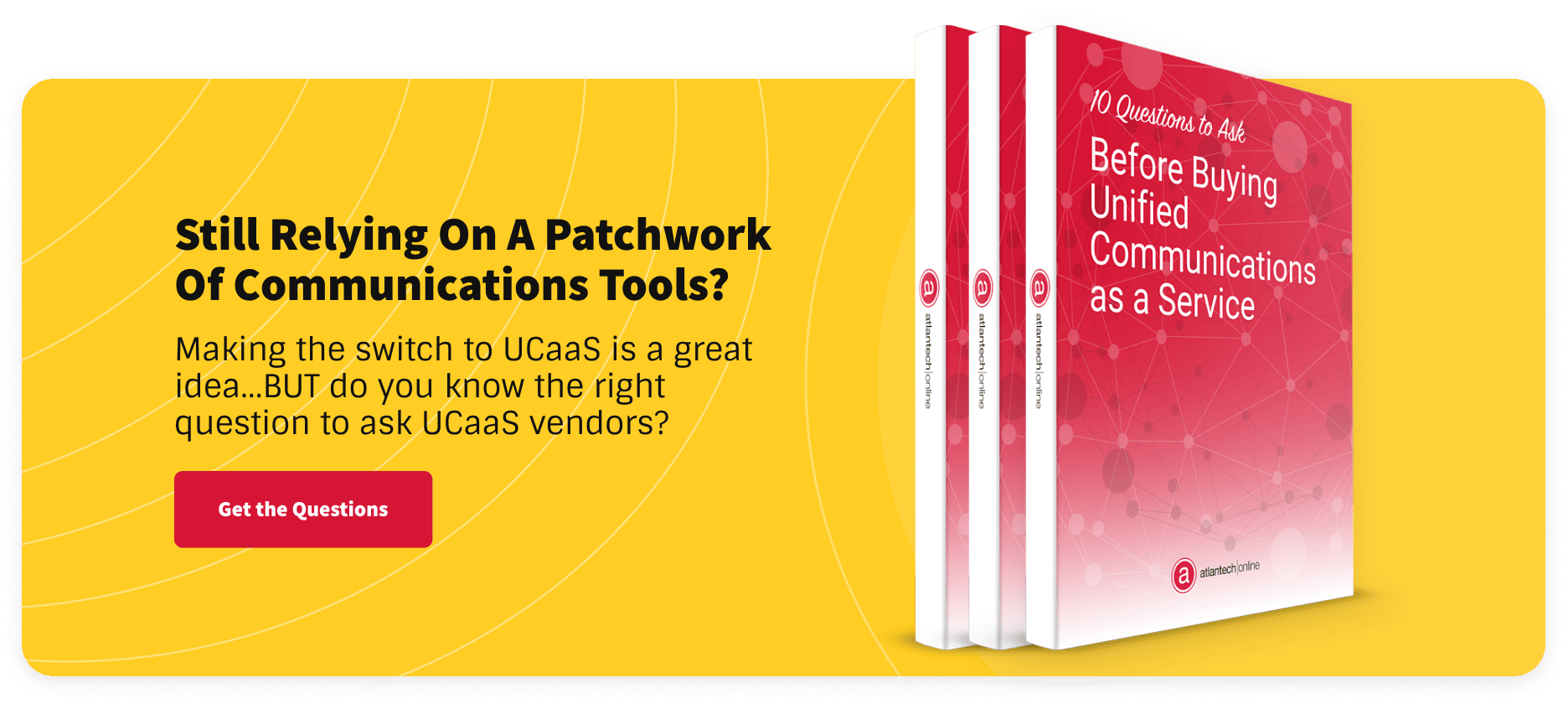The global pandemic that disrupted the world in 2020 greatly accelerated the adoption of cloud technologies. From our perspective, business communications, already changing at a rapid rate, literally changed on a dime.
Communicating internally with other staff and interacting with customers and prospects was forced to overcome the hurdle of almost EVERYONE being remote. How best to navigate the hurdles?
Whether it's issues communicating internally between employees, or issues related to customers contacting us for support and problem resolution, moving the PBX and the Contact/Call Center to the cloud have surfaced as the best options for business communications.
Unified Communication as a Service (UCaaS) offers solutions that overcome the inability of legacy, on-site PBXes to handle the strain of how we work. Contact Center as a Service (CCaaS) offers similar solutions for your customers and prospects who are contacting you to meet their needs.
Both UCaaS and CCaas are used globally and may be housed on the same cloud-based system. Knowing which one your business needs right now will help you design a targeted approach to meeting your employees' and customers' communications needs.
UCaaS vs. CCaaS: Definitions and Use-Cases
The real question isn’t which is better between UCaaS vs. CCaaS, but rather how can each benefit your company. Both solutions are similar in design, but they are different in the types of issues they solve. Let’s take a closer look at the difference between UCaaS and CCaas.
UCaaS
What is UCaaS? UCaaS is a service that allows businesses to put all of their communication tools into one specific cloud-based platform. Organizing communication tools helps you to see which tools are beneficial for your company and better manage them from one location.
UCaaS may include integrated contact centers in specific situations. The goal isn’t to provide communication tools to your customers. Instead, UCaaS improves how your employees communicate with each other.
Use-Cases of UCaaS: Traditionally, there are six primary functions of UCaaS programs.
- Voice and telephone service
- Meeting solutions
- Messaging
- Presence detection
- Desktop clients and browser clients
- Communications-enabled applications
CCaaS
What is CCaaS? CCaaS is a service that allows you to improve your customer or prospect support through a cloud-based subscription service. It keeps track of interactions using centralized and organized software.
CCaaS software is built to make things easier on your call center representatives as well as your employees. CCaaS allows your employees to access information throughout the call process and provide them with the tools they need to handle customer situations.
They also help route contacts and help ensure your customers are talking to the people who can help solve their issues, resulting in a better customer experience.
Use-Cases of CCaaS:
- Inbound and outbound business phone
- Customer service solutions
- Sales communication solutions
- Interactive Voice Recognition (IVR)
- Chat/messaging
Ultimately, both UCaaS and CCaaS offer benefits like cost reduction, additional flexibility, and improved productivity. However, each achieves these benefits in different ways.
As you continue reading, keep your company’s needs in mind. Do you have a legacy, premise-based PBX? Do you have a call center that historically consisted of agents working in the same room answering calls? We’ll dive into how UCaaS vs CCaaS can solve these two kinds of obstacles.

The Benefits of UCaaS
One massive UCaaS benefit is that it allows your remote team to access any information they could need while working. With the rising popularity of remote workforces, unified communication tools may be the solution for your business, especially if you need a centralized place to have your employees communicate.
UCaaS is reliable and helps keep communication channels secure. Since everything is in one place and only accessed by those with permission, sensitive information is safer than if it was sent in a consumer-grade email account.
Like CCaaS systems, UCaaS can support call management, like inbound calls, direct messages, and web chats for internal employee communication.
The Benefits of CCaaS
CCaaS systems are all about promoting a great experience by empowering your contact center agents. CCaaS is beneficial for call center agents because they can more easily access information. For example, the system could allow for names to appear with a phone number, helping you access order numbers before a call is connected.
CCaaS also gives you access to all sorts of data and analytics that could help you take a targeted approach to customer experience improvement initiatives. It can even help automate your helpdesk and your sales process.
For example, these services might predict user questions and offer suggested answers to common concerns, freeing up your employees to focus on more complex or in-depth issues.
UCaaS vs CCaaS: Better Together
There are many benefits to integrating either system, but it has to be worth the spend. If you find your company desperately needs improvement with communicating internally, it may be worth it to invest in a UCaaS.
Alternatively, you might notice your customers repeatedly calling with the same questions. CCaaS can help your call center employees focus on more significant issues while the system handles surface-level work through automated systems.
Our UCaaS platform integrates with very affordable and full feature CCaaS solutions. Ultimately, it’s not about deciding one is better than another - it’s about thinking about which may be of best benefit to your business. It’s very well possible that both will be the best benefit, making it worth investing in both.

